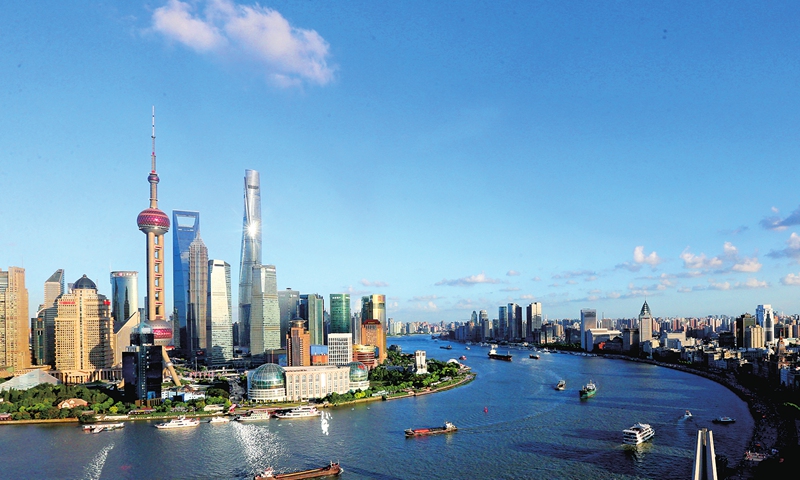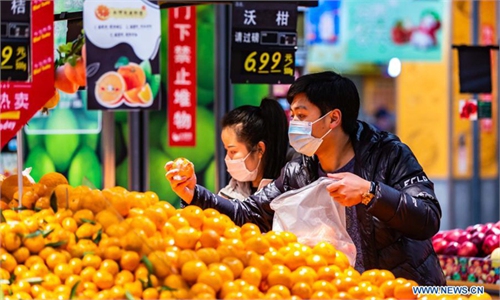China's common prosperity goal parallels with more opening-up and healthy development: Premier Li

File photo shows a view of the Lujiazui area in Shanghai.Photo:Xinhua
China's common prosperity is to be achieved with joint efforts in line with the opening-up policy, which has not changed and will not change, Chinese Premier Li Keqiang said during a press conference after the closing of the fifth session of the 13th National People's Congress on Friday.
Common prosperity has become a hot topic of discussion as China has set a clear target that by 2035 all people in China will achieve more obvious and substantial progress toward common prosperity.
While the introduction of the term "common prosperity" by the Chinese leader has led to an important discussion both inside and outside China, there are also some misconceptions by some media and individuals surrounding its purpose.
In responding to a foreign media question on whether the Chinese government will put further restrictions on business activities while pursuing the common prosperity goal, Li stressed that China's opening-up policy has not changed and will not change, and there are clear regulations in the foreign investment law.
"If there is any change, it will only develop in a direction that is conducive to expanding opening-up and to investment and trade," Li said.
Responding to foreign media claims about further restrictions, Li said that "foreign companies coming to do business in China have developed themselves, but they have also brought us investment, the markets for sales and the marketable goods for Chinese consumers, so we believe it is of mutual benefit. Why should we restrict them?"
The combined measures are also needed, which include putting emphasis on streamlining administration and delegating power, optimizing services, while opposing monopolies and unfair competition as well as preventing the disorderly expansion of capital and unfair competition, Premier Li said.
The purpose is to support enterprises operating in accordance with the law, and ensure that there is a level playing field for all entities, be they Chinese or foreign invested, and ensure that they will all have fair competition and healthy growth in a well-regulated way.
China's overall economy has deeply integrated into the world economy. Imports and exports in goods account for one-third of China's GDP, while imports have contributed over 70 percent of the industrial added-value.
For the past decade, China has remained the world's 2nd largest import market, and for the past five years, the largest trader in goods.
"I can tell you very clearly that no matter how the international environment may change, China will keep on the course of wider openness ... For anything that is conducive to our higher level of opening-up of this country, we will go for it," Li said.
Analysts also rebut some media's hype of linking the push to rein in unregulated capital expansion with China's common prosperity goal, experts said.
The restrictions imposed on capital of either Chinese or foreign capital are more about anti-monopoly while ensuring market competition is based on a level-playing field, Li Changan, professor of the Academy of China Open Economy Studies at the University of International Business and Economics, told the Global Times on Friday.
"China has been facilitating market openness which is reflected in the refining of the negative lists, with areas that used to be tight such as finance are opening wider than ever," Li Changan said.
According to data from the Ministry of Commerce, in 2021, the scale of China's foreign investment reached a new high, while the scale of actual use of foreign capital in the country exceeded 1 trillion yuan ($158 billion) for the first time, reaching 1.15 trillion yuan, a jump of 14.9 percent, which was the first time in the past ten years to achieve double-digit growth.

